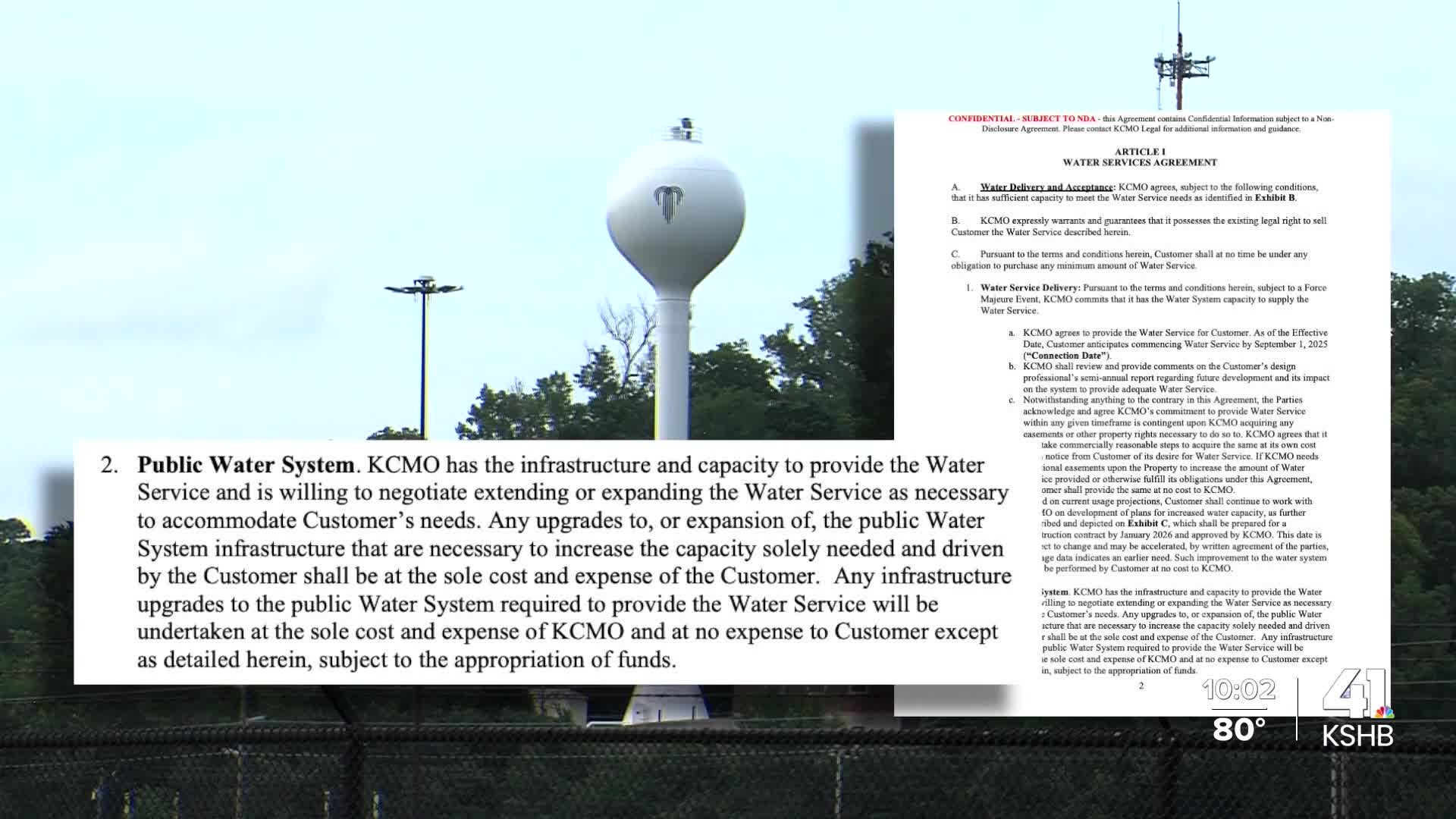KSHB 41 reporter Isabella Ledonne covers issues surrounding government accountability, solutions and consumer advocacy. Share your story with Isabella.
Data centers are massive projects that are an important tool to keep big tech running, but one of the major concerns is the resources required. The multi acre institutions require large amounts of electricity and water.
As a part of our Data, Dollars and Demand series, we obtained the Kansas City Water contracts between Meta and Google for their data centers.
The documents gave us a better idea of how much water the massive institutions could be using.
Meta's data center in the Northland could use up to 9.5 million gallons of water a day. The average household in Kansas City uses just under 100 gallons of water each day.
Data centers house tens of thousands of servers for the pictures you post on Facebook to the PDF you saved in the cloud. They also require massive cooling systems that use water to keep everything running.
"We have a big growth on the demand side," Dr. Yury Dvorkin said. "We have very little growth on the supply side."

Dr. Dvorkin is an expert on data center energy usage and infrastructure as a professor of electrical and computer engineering at Johns Hopkins University.
The AI explosion is driving up demand for data centers, but it's unclear how much energy and water they'll use in Kansas City once they are built.
"The load growth in general can have impacts on the reliability of the supply," Dr. Dvorkin said. "That's why it's important to make sure that we not only have available electricity, but that we're able to manage the power grid efficiently."
But what does 9.5 million gallons of water actually look like?
With how much Meta could be using for their data center, that's about the same as doing 400,000 loads of laundry at your house. It's also enough water to fill about 14 Olympic-sized swimming pools.
"What happens right now is an exchange of incentive for deployment for perceived benefits in the future," Dr. Dvorkin said. "These benefits are not exactly clear."
Kansas City's water capacity is 240 million gallons a day. The highest daily record usage number in 2023 was 150 million gallons of water.
"The question isn't do we have the water, yes we have the water," David Poirier said. "It's just getting it to those developments, the challenge associated with that."

Poirier is the KC Water division manager of water distribution engineering. He explained the city won't approve any project it doesn't have the capacity to handle.
"The developer bears that additional cost to get the water to their particular development," Poirier said.
According to Google's contract, they'll pay for any initial infrastructure to increase Kansas City's water capacity. But any infrastructure "to the public Water System required to provide the Water Service will be undertaken at the sole cost and expense of KCMO and at no expense to Customer."
"What's the impact to everyday users? I'd say none," Poirier said.
Google's water service to their Northland data center is expected to start in three weeks, but their expected usage is kept confidential. If it's similar to other data center operations, they could use millions of gallons of water a day.
Kansas City's Northland is on track to have four massive data centers.
"Do you think that we have the infrastructure to support all those projects?" KSHB 41 News reporter Isabella Ledonne asked.
"Absolutely," Poirier responded. "The public should not be worried about the impact to the level of service."
The KC Water Department's director did not make himself available to answer questions about the impact on customers' bills. Instead, KSHB 41 News received a statement.
"KC Water staff thoroughly vet each project that a private entity approaches the department with that will need water," a spokesperson said. "KC Water would not agree to sell water to any development that may adversely impact the department's ability to provide water to the hundreds of thousands of customers, both private and public, that are served. The department understands there are concerns from neighbors who may live near large usage entities. The department assures them all that their quality services will not change."





